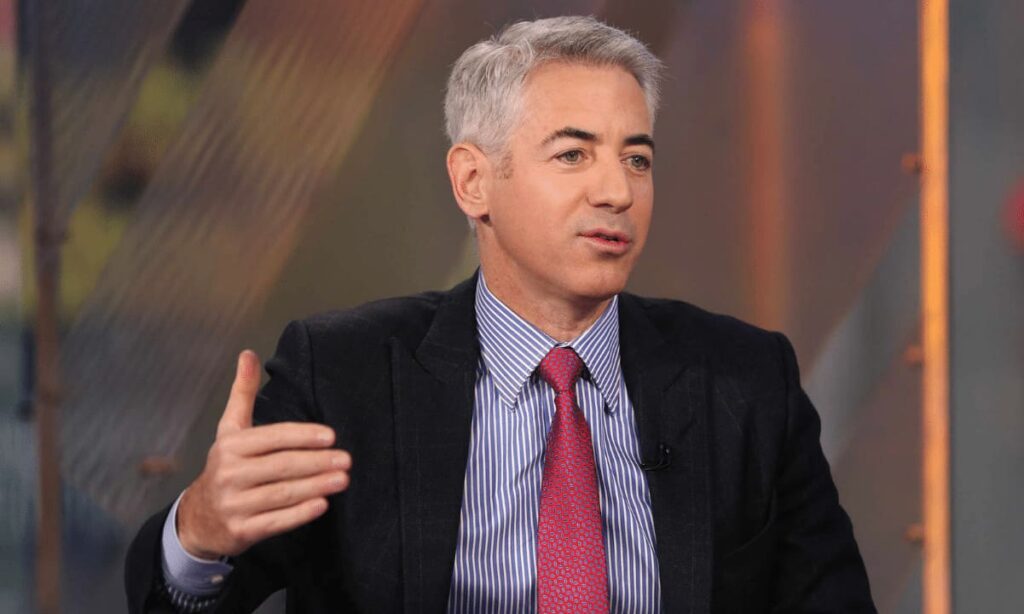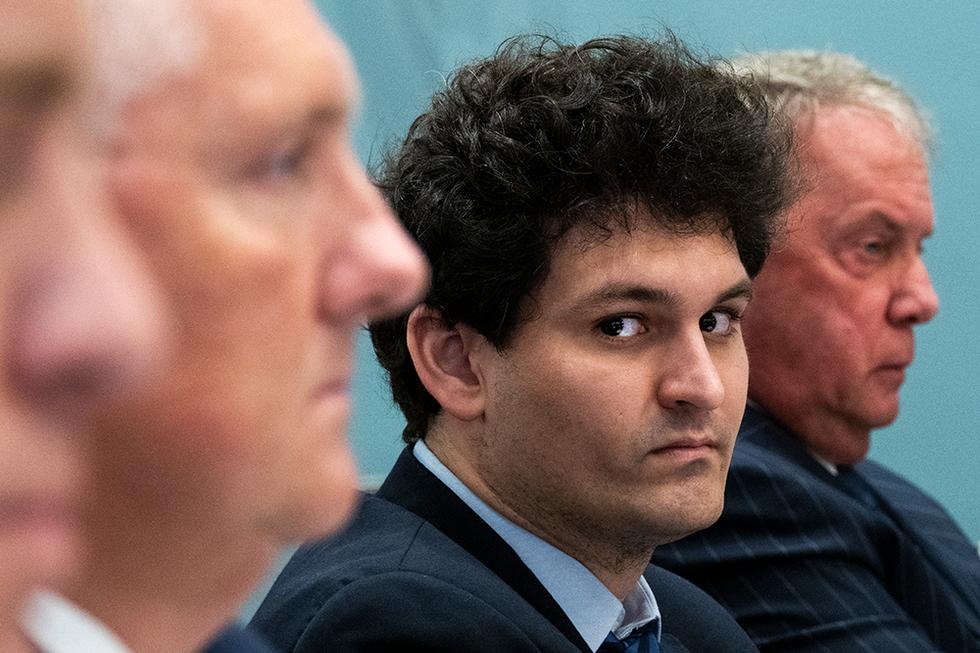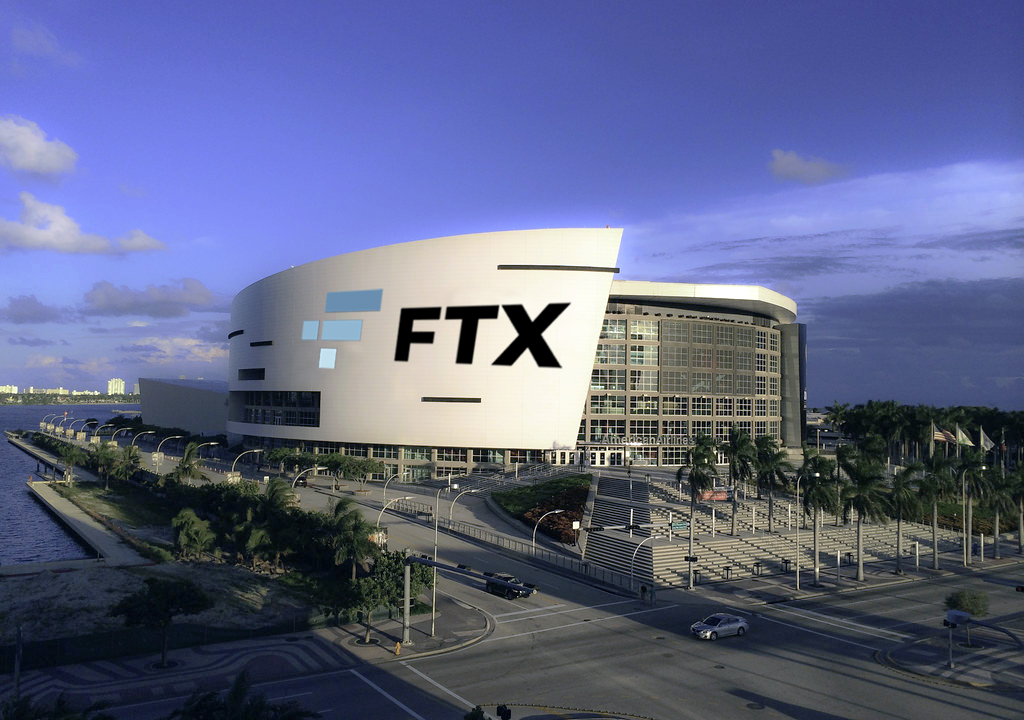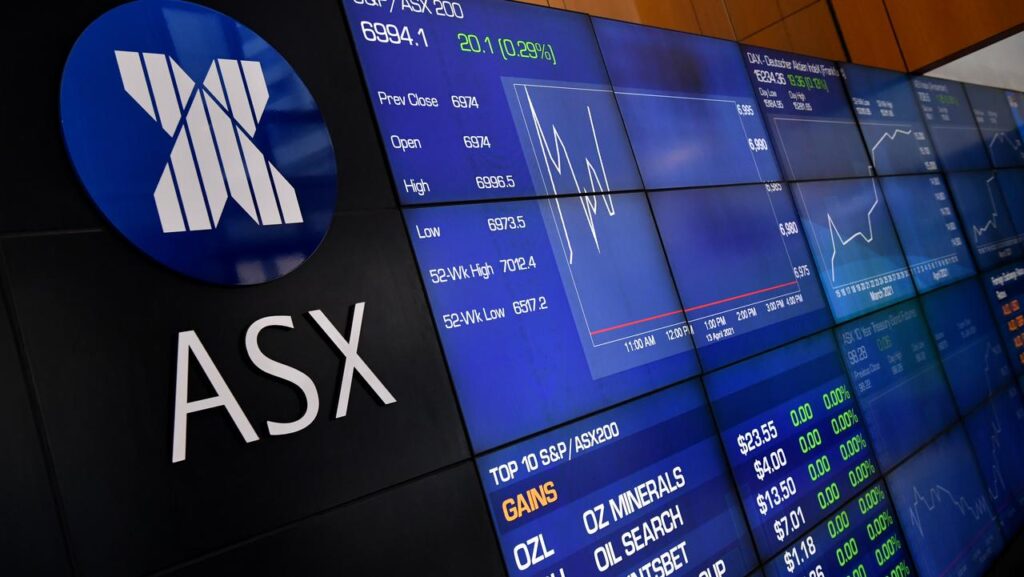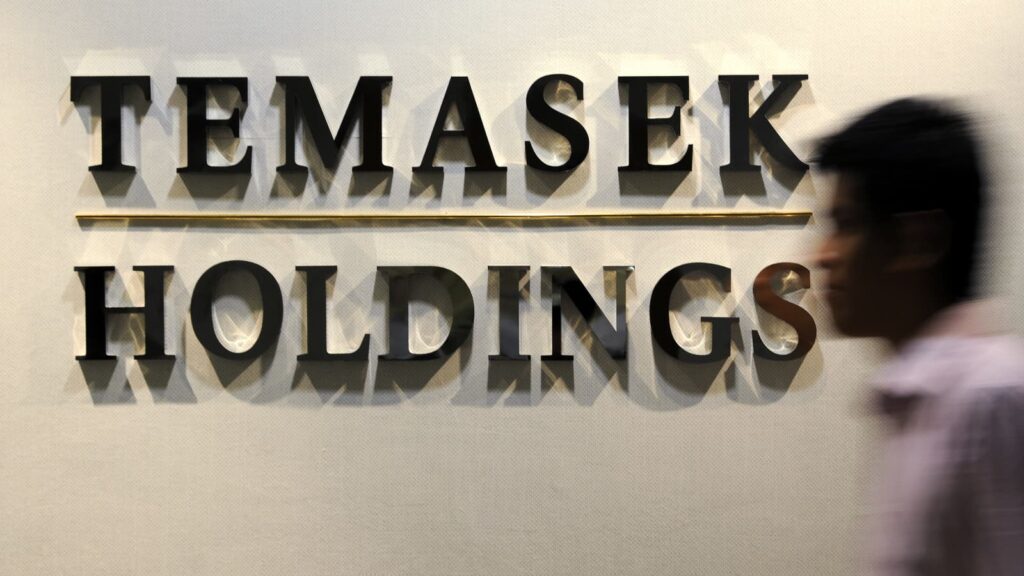Crypto investors across institutions have hit back at negative commentary linked to the collapse of FTX, indicating record levels of inflows from short-investment crypto products.
CoinShares chief strategy officer James Butterfill said that 75 percent of inflows from institutional cryptocurrency investors last week were short investments on the decline of crypto prices.
Deeply negative sentiment in crypto assets with the largest inflows into short-investments on recordhttps://t.co/zW0ZfGZDTo
— James Butterfill (@jbutterfill) November 21, 2022
He stated the bets were potentially “a direct result of the ongoing fallout from the FTX collapse,” adding total assets under management (AUM) from institutional investors stood at $22 billion.
Investment products on Ether reached $14 million, the “largest weekly inflow on record,” according to Coinshares. The company speculates that “renewed uncertainty” on Ethereum’s Shanghai upgrade along with massive amounts of the currency on the FTX exploiter were potential causes for negative outlooks.
Short investment product inflows for Bitcoin (BTC) also reached $18.4 million with a reported AUM of roughly from $173 million to $186 million.
FTX, Crypto Fire Sale?
The findings show a small increase from the previous week, which saw 14-week highs from crypto products reaching $42 million. Bitcoin short products also reached inflows of $12.6 million, reports found.
Numerous exchanges have also been hit by investors taking their holdings offline to self-custody exchanges. Coinbase, one of the world’s largest exchanges, recorded its lowest share prices in history on Monday, dropping 8.9 percent or $41 per share, MarketWatch data revealed.
The number of #Bitcoin held on exchange have fallen 27% from their 2020 peak and 11% this year. Are people losing trust in centralised exchanges? Quite possibly.. pic.twitter.com/0WY3NIIDxe
— James Butterfill (@jbutterfill) November 14, 2022
Its stocks have plummeted roughly 88 percent after the firm publically traded shares on 16 April last year.
Cryptocurrencies have also suffered from the ongoing fallout from FTX, with Bitcoin (BTC) nosediving 4 percent to roughly $15.725.02, CoinGecko data showed. Ether also tumbled 8 percent to $1,081.56.
Uniswap, a decentralised exchange (DEX), updated its privacy policy on 11 November, the same day of troubled exchange FTX’s bankruptcy. Updates to the policy have sparked a firm backlash from the crypto community, with many slamming its intent to store and collect user data.
In the blog post, the company explained that innovations in the blockchain that web3 hoped to “reclaim users’ privacy and choice” following decades of eroded policies from internet businesses.
Continuing, it said: “That’s why we’re releasing a new Privacy Policy today – we want to be crystal clear about what data we’re protecting and how we use any data we collect. Transparency is key. We never want our users to be surprised.”
The post later updated on 17 November, stating it would collect blockchain data, user device data, including browser and operating system information, and interaction with service providers.
It added that collected information would not include information that could personally identify users such as their name, address, email, or IP, among others.
The switch in policy received significant pushback from privacy advocates, who lambasted the company for backtracking on cryptocurrency’s core values of anonymity and privacy.
According to privacy-focused crypto platform Firo, Uniswap’s privacy push created a “dangerous precedent” for DEXs.
While we have the utmost respect in what @Uniswap has built, we strongly reject the incorporation of data collection to track user behaviour and onchain activity. This sets a dangerous precedent for DEXes. https://t.co/h4kCiQKtl7
— Firo $FIRO (@firoorg) November 21, 2022
It tweeted at the time: “While we have the utmost respect in what @Uniswap has built, we strongly reject the incorporation of data collection to track user behaviour and onchain activity. This sets a dangerous precedent for DEXes.”
STOP using @Uniswap $UNI
— Yoda Research (@YodaResearch) November 21, 2022
They’ve expanded their collection of on/ off chain data connected to your wallets
eg
– mobile deviceID
– cookies
– localStorage
– device/ browser language
– screen wallets via 3rd party
…
🚨even share social media activity with analytics provides. wtf
A representative from Yoda Research urged people to stop using Uniswap’s platform, stated they expanded on and off-chain data from wallets to “mobile deviceID, cookies, localStorage, device/ browser language, [and] screen wallets via 3rd party.”
“[They] even share social media activity with analytics [providers]. wtf,” it concluded.
DEX SpookySwap affiliate OwenP also criticised the move to store and collect backed information as strange, adding: “We were contacted […] by an infrastructure provider once who asked about our backend and what info we kept we were shocked by the question. ‘None of course’ [was] the answer.”
Transparency Push after FTX Collapse
Exchanges such as Binance, Crypto.com, and Solana vowed full transparency for their millions of users, adding they would publish “audited proof of reserves” following the collapse.
Crypto.com chief executive Kris Marszalek has joined a growing list of cryptocurrency firms publishing their “audited proof of reserves” in the aftermath of the FTX crypto scandal.
The comments come after crypto exchange FTX.US, Alameda Research, and 130 affiliate firms fell bankrupt on 11 November, sparking several exchanges to push for more transparency for their clients.
“[We] will publish the list of cold wallet addresses and balances for major assets within 24 hours. Full transparency,” Solana tweeted at the time.
Numerous investors and market speculators have turned to Twitter to analyse the aftermath of the ongoing FTX crisis, which saw millions of people lose funds and savings on the platform this month.
Joshua Felder, chief executive of the organisation ‘Do Not Pay’ said in a series of tweets last week that investors could follow five possible steps to mitigate some scenarios linked to the ongoing crisis.
With FTX in bankruptcy, it may seem like there is nothing that people can do to get their funds back.
— Joshua Browder (@jbrowder1) November 14, 2022
But, I have spent the weekend brainstorming with lawyers out of the box strategies for people to get their funds TODAY.
Here are five things retail investors can do:
According to the exec, he recommended the following five steps to resolve the issue:
Reversing ACH Deposits: FTX US users can reverse ACH transfers in 60 days after the deposits if activities are fraudulent, pending E/NACHA guidelines.
YouTube: Clients can launch a YouTuber class action lawsuit against influencers advocating FTX. According to Felder, FTX paid select YouTubers $50,000 or more monthly.
Gift Cards: Retailers such as Gamestop offered FTX gift cards, which users can mark as a disputed transaction under the “product not received” Fair Credit Billing Act.
Target FTX entities: Users can also target non-bankrupt FTX entities such as LedgerX LLC and others in civil lawsuits. He added that some claims judges could possibly label entities as liable under “should have known” rulings.
Sue Senior FTX Employees: Those affected could potentially target senior employees and their assets in some states, including California, as many are not protected under bankruptcy. Individuals suspected of fraud could be held liable under CA Corp Code § 17703.04
The news comes after Sam Bankman-Fried’s crypto exchange nosedived into Chapter 11 bankruptcy on 11 November along with 130 linked companies. This has left investors with potentially “decades” of waiting to receive lost funds on the platform, analysts have warned.
Reuters estimates that FTX owes “nearly $3.1 billion” to its 50 largest creditors.
Bill Ackman, a major hedge fund manager and billionaire, has doubled down on his support for cryptocurrencies. In a recent Twitter thread, he backed crypto amid the ongoing FTX crypto crash.
The Pershing Square Capital Management founder said in his 20 November tweets that “crypto is here to stay,” despite the bankruptcy of FTX and subsequent collapse of firms linked to the troubled exchange.
He also called for tighter regulations and for removing “fraudulent actors” in the industry.
To be clear, I am not advocating for any particular crypto project. Rather, I am making the case that crypto can facilitate potentially useful and important businesses that heretofore could not exist. That said, the success of any individual project is a function of the ultimate https://t.co/SvpQMHrt0y
— Bill Ackman (@BillAckman) November 20, 2022
He added: “I think crypto is here to stay and with proper oversight and regulation, it has the potential to greatly benefit society and grow the global economy.”
Despite difficulties in the market, he said that cryptocurrencies would improve their fraud prevention capabilities, adding: “The problem with crypto is that unethical promoters can create tokens simply to facilitate pump and dump schemes. It may in fact be that the vast majority of crypto coins are used for fraudulent purposes rather than for building legitimate businesses.”
To crack down on “fraudulent actors,” he urged incentivisation for “legitimate” crypto investors to expose and tackle “fraudulent” cryptocurrency investors increasing potential regulatory intervention “that will set back the positive potential impact of crypto for generations.”
Speaking further, he said: “I was initially a crypto skeptic [but] I have come to believe that crypto can enable the formation of useful businesses and technologies that [before now] could not be created. The ability to issue a token to incentivize participants in a venture is a powerful lever in accessing a global workforce to advance a project.”
The comments come after Sam Bankman-Fried’s crypto empire collapsed in November due to a massive liquidity crisis and subsequent liquidation of FTX’s native token, FTT, on rival firm Binance. This triggered a huge bank run, with millions of clients losing their funds on the bankrupt platform amid the turmoil.
Singaporean authorities cautioned investors on Saturday of false websites that could dupe them into purportedly recovering lost FTX funds from the bankrupt exchange.
Scammers claiming to be the United States Department of Justice have been luring people hit by FTX’s collapse to websites requesting login information and credentials, according to Channel News Asia.
Investors have been cautioned by the Singapore Police Force to be careful of fraudulent websites that promise to help them recover money from the now-defunct #crypto exchange FTX. The police warned about a phishing website asking #FTX users to log in with their account details.
— kunji (@kunjitweets) November 21, 2022
The messages state they “would be able to withdraw their funds after paying legal fees.”
Singapore’s Police Force has also alerted investors of false articles advocating domestic cryptocurrency programmes, many of which include Singaporean lawmakers such as Tan Chuan-Jin, the nation’s parliament speaker.
The news comes after Police have urged investors to avoid cryptocurrency scams, namely as over one million people were hit by the recent collapse of the exchange on 11 November.
Singapore’s Crypto Crackdown
The news comes as Singapore aims to tighten regulations on cryptocurrencies and their exchanges, where it has urged investors to reconsider speculation on digital currencies.
Some of the regulations will block retail investors from trading cryptocurrencies at times when it could appear “irrationally oblivious” to the potential risks.
The Monetary Authority of Singapore (MAS) said at the time that consumers were trading based on the hope of spikes in price increases. Some restrictions include “customer suitability tests” and restricting leverage and credit facilities for trading crypto.
The measures come in a bid to promote digital asset innovation and limit cryptocurrency speculation.
The MAS also backed further measures after Three Arrows Capital (3AC) went into administration amid the ongoing FTX collapse, which sent shockwaves across the crypto industry on 11 November.
Singaporean central bank authorities will target digital payment token (DPT) services related to Bitcoin, Ethereum, and XRP to crack down on risk exposures and boost stablecoin transaction standards.
Kroll has stepped in as the restructuring administration firm to manage collapsed crypto exchange FTX as it struggles amid its Chapter 11 bankruptcy.
The enterprise was appointed on 12 November and officially announced the news on the 17th. To date, it hopes to build a database of FTX Trading’s total claims along with over 100 linked companies.
Just eight claims have surfaced on the database, with Ethereal Tech filing one for $11.7 million, with all eight cases totalling $40.9 million.
According to reports, FTX Trading owes investors up to $8 billion. Over 750 parties are involved in the case, including a roster of banks, insurance providers, regulators, and debtors, among others.
Press Release:
— FTX (@FTX_Official) November 17, 2022
FTX Group has established Kroll as its claims agent, and all official documents filed with the U.S. Bankruptcy Court can be found online at https://t.co/7Bsn9Ggckf. pic.twitter.com/OFuCmlJXgJ
The filing also indicates that it has listed interested parties to update on ongoing developments. Names on the list include massive multinational firms such as Apple, Facebook, Wells Fargo, Bank of America, Stephen Curry, and others.
This other tweet, just from a few days ago… you guys are nothing but a bunch of criminals who should be behind bars…https://t.co/Cn8FRj2jl1
— Balanced Investor ⚖️ (@InvestorBalance) November 17, 2022
The firm is a subsidiary of Kroll LLC, which managed several of Harvey Weinstein’s sexual harassment cases in 2016. It is also involved in corporate governance, cybersecurity risks, and compliance.
The news comes after FTX, FTX.US, Alameda Research, and nearly 130 interlinked companies filed for Chapter 11 bankruptcy due to a massive liquidity crisis in the crypto exchange last week. The events triggered a series of collapses across the crypto industry, potentially including crypto lending firm BlockFi.
World-renowned crypto investor and blogger Anthony Pompliano has rallied behind the embattled crypto industry amid the collapse of Sam Bankman-Fried’s FTX.
At the Texas Blockchain Summit on Thursday, he stated that market forces would remove negative players in the cryptocurrency sector as quickly as bad businesses.
He told the audience: “It might be a little counterintuitive, but the free market is a hell of a f*cking referee. If you watch what just happened, this industry is who held the industry accountable,” he said.
According to him, the “judge, jury, and executioner” had been the ” was the “free market and the industry itself.”
Pompliano added: “CZ is the one who used market forces to take that company [FTX] down.”
Explaining further, he added: “At the end of the day, the judge, jury, and executioner was the free market and the industry itself […] The good people, they survive, the bad people, they end up getting washed out.”
He explained on CNBC in a recent discussion this week that many people were uncertain of what was taking place with the market. Continuing, he said he had business funds on FTX’s exchange along with advertising relationships.
Here is my appearance with @ScottWapnerCNBC from earlier today.
— Pomp 🌪 (@APompliano) November 15, 2022
Bitcoin is one of the most important technologies in the world and these conversations help to sharpen how we all think about what is developing.
I appreciate Scott’s willingness to always discuss.
Part 1: pic.twitter.com/oFpNh7Yxma
He added that Bitcoin was “one of the most important technologies in the world,” adding open conversations helped people to “sharpen” people’s understanding of current developments.
Pompliano has remained a staunch Bitcoin fan, namely after launching Morgan Creek Digital Assets in 2018. He founded the North Carolina-based firm with Mark Yusko and has defended the crypto mining industry’s use of energy consumption, stating that “crucial things in the world use energy.”
Based on my conversations over the last 24 hours, people are drastically underestimating how much damage has been done this week to institutional interest in both bitcoin and the broader crypto ecosystem.
— Pomp 🌪 (@APompliano) November 10, 2022
In a 10 November tweet, praised the state of the cryptocurrency market, stating that people were “drastically underestimating how much damage” had been done to interest in “Bitcoin and the broader crypto ecosystem.”
He said that Bitcoin would not just survive, but thrive “in the coming years,” adding: “But we shouldn’t ignore the fact that this week was a set back for everyone, regardless of what corner of the industry you play in.“
Concluding, explained: “When the confidence game is over for the crypto industry, the market comes back to Bitcoin.”
People have taken to social media to speculate on the pricing of Bitcoin (BTC), with many debating on whether bullish or bearish investors would profit amid expiring BTC options on Friday.
Due to the FTX debacle’s liquidity collapse, thousands of crypto enthusiasts have lost access to their funds on the fallen crypto exchange, where investors saw $290 million in leverage buyers liquidate their holdings.
Bitcoin bulls have needed to aim high at $20,000 or more as a huge cache of weekly options totalling $600 million are set to expire on 18 November, holding from 25 October for nearly two weeks, analysts have speculated.
Actual totals may be lower than estimated, allowing bear speculators to bet on an $18,000 or higher mark following after investors dumped thousands of BTC after embattled crypto exchange FTX went bankrupt.
Bitcoin prices readjusted following the collapse, falling to prices from $15,800 to $17,800 over the last week, with investors fearing the crisis spreading to other corners of the market, forcing investors to sell their crypto positions.
FTX also caused people to lose massive losses, including crypto lending platform BlockFi, who had $400 million in credit assets on FTX US. Liquid, a Japanese cryptocurrency exchange, also faced similar issues following the crisis.
Who Laughs Last?
According to reports, Bitcoin bears can potentially snap up a $120 million bonus by keeping Bitcoin (BTC) under $16,500.
Should Bitcoin remain below $17,500 on 21 October, roughly a tenth of total call options will remain. Reports add that a right to buy Bitcoin priced at $18,000 to $19,000 per coin would become worthless if it trades below the expiry price, indicating a need for BTC to pump beyond $18,00 to succeed.
On Friday, $600 million worth of Bitcoin options expire, providing bears justification to price BTC beneath $16,000.
— The Alpha space (@TheAlphaspace1) November 18, 2022
For Friday’s $600 million BTC options expiry, bears are better positioned, but if Bitcoin prices rise beyond $18,000, bulls could turn the tables.
According to Twitter user The Alpha Space, Friday’s expiry date for BTC options would provide “bears justification to price [it] beneath $16,000.”
It added: “For Friday’s $600 million BTC options expiry, bears are better positioned, but if Bitcoin prices rise beyond $18,000, bulls could turn the tables.“
#Bitcoin Analysis: Today Options expire, thats why (stock) markets are hovering arround key levels. Clearly Bullish strength is lacking. Bears will most likely push down price next week. Expecting 14k$ #BTC, which is very likely to be the last dip👀 pic.twitter.com/DiO7wsxAXz
— JimCramerIsSus (@CountDestroyer2) November 18, 2022
Another Twitter user commented that the expiring options were the likely reason why stock markets were “hovering around key levels.”
She explained further that bullish strength was “lacking” and that bears would “most likely push down the price next week.”
“Bears will most likely push down price next week. Expecting 14k$ #BTC, which is very likely to be the last dip,” she concluded.
The Australian Securities Exchange (ASX) recently announced it had cancelled plans to allow clearing and settlements systems to use the blockchain.
ASX said in a Thursday statement it had halted activities for its Clearing House Electronic Subregister System (CHESS) replacement project after global IT consultancy Accenture conducted an independent review.
The review revealed “significant challenges with the solution design and its ability to meet ASX’s requirements.”
Accenture’s 47-page report concluded that such business workflows were “not tailored for a distributed environment,” and that the projects completion was too complex and uncertain.
It added: “Current activities on the project have been paused while ASX revisits the solution design.”
ASX had attempted to complete a distributed ledger technology (DLT) as the successor to its ageing, 25-year-old CHESS system, which managed transaction settlements and recorded shareholdings.
It aimed to launch in 2020, but was hit by the COVID-19 pandemic and calls for further testing.
Responses to ASX SNAFU
The Exchange’s chairman, Damian Roche responded, stating there were “significant technology, governance, and delivery challenges” to address.
Reserve Bank of Australia (RBA) Governor Philop Lowe slammed the decision as “very disappointing.”
Australian Securities Investment Commission (ASIC) chairman Joe Longo added the ASX had “failed to demonstrate appropriate control of the program to date,” which had “undermined legitimate expectations that the ASX can deliver a world-class, contemporary financial market infrastructure.”
According to figures, the ASX cost taxpayers from $164.6 million to $171.3 million.
Singapore’s Temasek has revealed in that it did not find any major red flags in the now-disgraced FTX cryptocurrency exchange.
The state-owned investment firm said in the recent post it had invested $275 million in the exchange and had conducted due diligence over an eight-month period last year.
Investments included a $210 million or 1 percent stake in FTX International, along with a $65 million, 1.5 percent stake in FTX’s US wing, it stated.
Temasek added it checked FTX’s financial statements and investigated regulatory risks with market service providers in the crypto industry. It also received consultations from specialists in law and cybersecurity.
The company also interviewed people familiar with the exchange such as investors, employees, and others.
Due Diligence or Do Diligence?
Speaking on its due diligence process from February to October, it said: “The thesis for our investment in FTX was to invest in a leading digital asset exchange providing us with protocol agnostic and market neutral exposure to crypto markets with a fee income model and no trading or balance sheet risk.”
It added that it recognised that due diligence can “mitigate certain risks” but could not “eliminate all risks.”
Explaining further, Temasek added,
“It is apparent from this investment that perhaps our belief in the actions, judgment, and leadership of Sam Bankman-Fried, formed from our interactions with him and views expressed in our discussions with others, would appear to have been misplaced.”
The investment company assured it had “no direct exposure in cryptocurrencies,” adding its FTX investments were just 0.09 percent of its portfolio valued at $293 billion.
It concluded in its post,
“We continue to recognize the potential of blockchain applications and decentralized technologies to transform sectors and create a more connected world.”
Recent events showed that the “nascency of the blockchain and crypto industry” posed significant risks, it continued.
The Crypto Industry: Moving Forward
Concluding Temasek stated it supported efforts from regulators and courts and called for an “orderly resolution to outstanding matters.”
“There are inherent risks whenever we invest, divest, or hold our assets, and wherever we operate. While this write down of our investment in FTX will not have significant impact on our overall performance, we treat any investment losses seriously and there will be learnings for us from this,” it said.
The news comes after FTX’s collapse rocked the crypto industry, namely after former chief executive Sam Bankman-Fried saw a massive liquidity crunch trigger a bank run on his platform’s native token, FTT.
FTX and rival exchange Binance entered talks to bail out the embattled crypto exchange, but plans fell through due to what Binance CEO Changpeng Zhao (CZ) found were major due diligence concerns with the Bahamas-based company.






